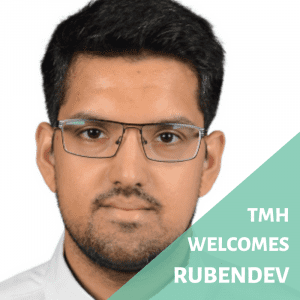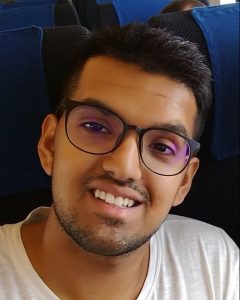- 2022/03/14
- TMH News

We are delighted to welcome our new counselor, Rubendev Singh Dhillon, to Tokyo Mental Health’s growing team of mental health providers!
Ruben is a Level 2 Member and Registered Counselor with the Australian Counseling Association (ACA) and a Licensed Registered Counselor with the Board of Counselors, Malaysia. He completed his BA in Psychology at Nottingham University of UK at their Malaysia campus. He served as a therapist for children with learning disabilities, autism, and ADHD at the National Autism Society of Malaysia. In 2018, he obtained a Master in Professional Counseling from Monash University of Australia at their Malaysia Campus. During his training, he worked with a diverse range of individuals in multiple settings such as a psychosocial rehabilitation center, children’s care home and vocational school for abandoned adolescents.
He has worked with individuals experiencing anxiety, depression, social anxiety, behavioral problems, schizophrenia, bipolar disorder, PTSD, and substance abuse. He recently ventured into virtual counseling since seeing a post-pandemic surge in demand for online mental health services. On the online platform, he worked with individuals facing relationship issues, suicidal ideation, domestic abuse and self-harm behaviours. He uses cognitive behavior therapy (CBT), client-centered therapy, and has been expanding focus on acceptance and commitment therapy (ACT). He utilizes tools from other modalities such as person-centered therapy, narrative therapy and solution focused therapy.
We asked Rubendev some questions to get to know him better…read more below!
What do you enjoy most about being a counselor?

The most exciting thing about being a counselor is the fluidity of the process in unraveling problem areas and guiding clients toward their goals. It brings a great sense of satisfaction when clients are able to live the life they wish to live, experience what they consider a ‘the good life’ and happiness. No two people are the same and being able to find an approach that works for the client is what makes being a counselor enjoyable. The journey of being a counselor is at the same time a personal one wherein personal development can occur during sessions. I sometimes find that a client’s perspective brings about a personal reflection, a new perspective to consider and an opportunity to expand one’s own personal horizons. I refer to counseling as an active journey both the client and counselor partake together, with the objective of achieving goals set by the client.
What is your main research interest?
My masters research paper was on the effectiveness of using virtual components during a cognitive behavior therapy (CBT) session for individuals with social anxiety, and its ability to improve client retention as compared to a traditional CBT session. My research interest is in innovation in therapy, modern iterations of established therapy modalities and the incorporation of new findings into the modern day therapy session. A recent interest of mine is ASMR (Autonomous Sensory Meridian Response) wherein specific audio-visual stimuli, social in nature and in some cases intimate, induce a tingling sensation in the crown of the head, scalp, neck, and sometimes in limbs. Experiencing ASMR has been linked to feeling calm and a positive emotional state and has been shown to reduce heart rate and skin conductance (e.g., Poerio, G. L., Blakey, E., Hostler, T. J., & Veltri, T, 2018). ASMR can potentially be applied for therapeutic benefit given that it represents a reliable and simultaneously calming, pleasant and activating experience both in self-report and according to physiological measures. In comparison, common sensory phenomena such as aesthetic chills have a physiological profile dissimilar to the subjective tactile sensations in response to triggering audio and visual stimuli observed in ASMR.
What are your hobbies?
Sports have always been a part of me growing up and I vividly remember my first day of swim class, first day of karate lesson and after-school tennis lesson. I was motivated by learning the technicalities of each sport. Besides these, I would leisurely enjoy table tennis with school mates and hitting golf balls at the driving range with my dad. These hobbies are now joyful memories of my childhood. Badminton was my favorite sport growing up. I enjoy the skill of manipulating the shuttle along with the appropriate footwork to match and it has been the sport that I am most active in till adulthood. Recently I took up cycling for exercise and leisure. Like the hobbies before, I was intrigued by the understanding of the components of this sport such as its invention, bicycle component technology and cycling events . I would research upgrading parts, install new parts myself, attempt to repair or replace old parts, clean regularly and find new routes to cycle on. This enhanced my experience of owning and utilizing my bicycle. Traveling like cycling is another hobby that I find is intriguing and is a therapeutic process at the same time. The anticipation of a new environment or experience is unlike any other. It gives me a sense of independence, renewal and the sense of a life worth living.